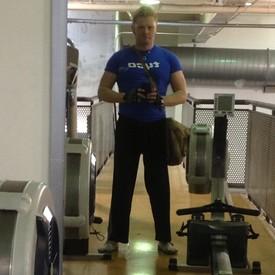Health & Exercise Myths

Username1119
Posts: 6 Member
Good Morning everyone. Being a fitness professional, I get a lot of questions about health and exercise myths and I thought I'd post thisand share to kee you all informed, as I do my clients as well. I wish you all success in your journey. Be encouraged!
There are many articles and advertisements on the internet and in magazines that depict different health and exercise myths. The media pushes these myths because over a period of time people have become accustomed to taking it for absolute truth, when in fact the media pushes these myths to help them sell a product, whether it be supplements or fitness equipment.
Many supplements sell consumers on the “maximum fat burning” myth that with one jar, you will burn all the fat away. The truth of the matter is that most supplements take a long time and one must incorporate diet and exercise.
“Muscle turns to fat” is another myth which is used to encourage consumers to buy equipment selling people on the idea that their muscle will turn to fat if they do not use that product. While it is true that if you don’t use it, you lose it, it should also be said that muscle and fat are not composed of the same tissues.
“Reduced calorie diets” are another myth sold to consumers with the idea that one will lose weight by reducing the caloric intake. While it is true that reducing one’s calories will make the body smaller in shape, it should also be told to consumers that reduced calorie diets also rob the body of proper carbohydrates, proteins, and fats that are necessary to the body. Without the proper nutrients, the body will break down muscle tissue for energy.
The myth that “RDA recommendations apply to everyone” is not true. This is untrue because sedentary people and athletes have different nutritional requirements and the activity level and the height and weight must be taken into account.
“Spot training” is another myth which sells people on the idea that if they want 6-pack abs, all they have to do is so many crunches and their dreams of ripped abs will come to life. Not true. There is no factual basis for spot reduction. When exercising, the body uses energy from all regions of the body to burn fat.
I have learned that there is some truth behind some myths and some myths are just false. for those that donot know, this just gives us a better understanding behind the common myths that are on the internet and in magazines.
There are many articles and advertisements on the internet and in magazines that depict different health and exercise myths. The media pushes these myths because over a period of time people have become accustomed to taking it for absolute truth, when in fact the media pushes these myths to help them sell a product, whether it be supplements or fitness equipment.
Many supplements sell consumers on the “maximum fat burning” myth that with one jar, you will burn all the fat away. The truth of the matter is that most supplements take a long time and one must incorporate diet and exercise.
“Muscle turns to fat” is another myth which is used to encourage consumers to buy equipment selling people on the idea that their muscle will turn to fat if they do not use that product. While it is true that if you don’t use it, you lose it, it should also be said that muscle and fat are not composed of the same tissues.
“Reduced calorie diets” are another myth sold to consumers with the idea that one will lose weight by reducing the caloric intake. While it is true that reducing one’s calories will make the body smaller in shape, it should also be told to consumers that reduced calorie diets also rob the body of proper carbohydrates, proteins, and fats that are necessary to the body. Without the proper nutrients, the body will break down muscle tissue for energy.
The myth that “RDA recommendations apply to everyone” is not true. This is untrue because sedentary people and athletes have different nutritional requirements and the activity level and the height and weight must be taken into account.
“Spot training” is another myth which sells people on the idea that if they want 6-pack abs, all they have to do is so many crunches and their dreams of ripped abs will come to life. Not true. There is no factual basis for spot reduction. When exercising, the body uses energy from all regions of the body to burn fat.
I have learned that there is some truth behind some myths and some myths are just false. for those that donot know, this just gives us a better understanding behind the common myths that are on the internet and in magazines.
0
Replies
-
That's good stuff. thank you for sharing.0
-
As the saying goes "If it sounds too good to be true, then it is!" Thank you for sharing this information.0
-
You're welcomed everyone. Have a great day!
 0
0 -
Great stuff! Thanks.0
-
Are all calories created equal ?
Here on this website, we're all counting calories as if 1 calorie is the same as another ... no matter where that calorie comes from.
So, in your opinion, is a calorie a calorie as MFP would have you believe, or should we start being smarter about what type of calories we take in, and their sources.
Obviously, using MFP to track all this is useful .... but should we consider the source of the calories rather than the artificial ceiling we put on ourselves.
Say we blow out our quota of calorie intake for the day or week or whatever.... but we did it with fruit, veges, whole grains and lean meats etc. We also only ate when we needed too and didn't binge eat or snack unecessarily, drank plenty of water etc. We worked out etc, but still exceeded that calorie intake. Should we or shouldn't we be concerned ? I don't think we should be overly concerned ....... except if we blew out the calories with processed foods, cookies, ice cream and lean cusines etc.
I have read where the calorie is a calorie is the old school way and debunked .... but it was also on the interweb and seemed like just another advertisement or phishing scam. Finding good information on which are good calories etc, and then, how much to actually eat (or not eat) is almost a full time job (I guess that's why PT's are employed huh ?)
Any good resources you recommend ? Or places to stay away from ?0 -
Re: Are all food calories created equal?
No, they are not. A calorie is simply a quantity of heat that is needed to raise the temp fo a gram of water 1 degreee C. This is what "buring calories" means. The higher the body fat percentage, the fewer calories the body burns. Getting rid of fat permanently is made easier by increasing your metabolic rate, which is done by eating and exercise.
When you eat, the body uses that food 3 ways: for fuel, excretes it, or stores it as body fat. So if you count calories, you SHOULD be concerned with the "type" of calories you take in, as you don't want the foods you are taking in to be soley stored as body fat as opposed to being burned for fuel for your workouts.
If your goal for the day is 1800 calories, you should not eat "anything" that gets you to 1800, but rather makes sure those 1800 calories are comprised of 1 part fat, 2 parts protein, and 3 parts carbs. Your body DOES need fat in the diet , but not an excess amount of it. You can have 200 calories to go to reach your daily goal, but will it be 200 calories of Fig Newton's or a Hershey's bar? So unfortunately, it does matter what kind of calories you take in.
A good place you can go online to check the calories that are in a lot of these foods is CALORIEKING.COM. It gives you the calories, fats, and carbs for almost everything, including the counts for your local fast food restaurants which claim to have healthy foods.
Hope this helps
Zabrina0 -
Another great place to find the calorie and nutritional content of almost every type of food is My Fitness Pal - you know, the website we're on right now. The database is constantly updated by us MFP'ers.
Just saying.0
This discussion has been closed.
Categories
- All Categories
- 1.4M Health, Wellness and Goals
- 398.2K Introduce Yourself
- 44.7K Getting Started
- 261K Health and Weight Loss
- 176.4K Food and Nutrition
- 47.7K Recipes
- 233K Fitness and Exercise
- 462 Sleep, Mindfulness and Overall Wellness
- 6.5K Goal: Maintaining Weight
- 8.7K Goal: Gaining Weight and Body Building
- 153.5K Motivation and Support
- 8.4K Challenges
- 1.4K Debate Club
- 96.5K Chit-Chat
- 2.6K Fun and Games
- 4.8K MyFitnessPal Information
- 12 News and Announcements
- 21 MyFitnessPal Academy
- 1.6K Feature Suggestions and Ideas
- 3.2K MyFitnessPal Tech Support Questions




